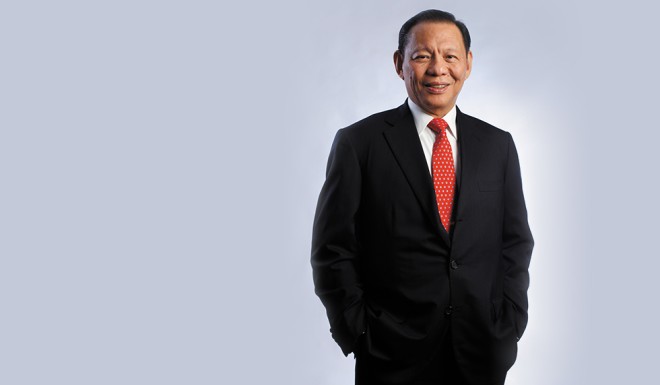
Mapping Out a Centennial Legacy
Sukanto TANOTO, Chairman of RGE, plans for a family office that will lead to 100 years of stability and sustainability
[Sponsored Article]
Sukanto Tanoto knows what it takes to nurture and scale up a new business. As the Founder and Chairman of Royal Golden Eagle (RGE), which manages a group of companies in resources-based manufacturing, he has created global players while ensuring they remain sustainable.
The long-term strategy that Tanoto has applied to his businesses is mirrored in the development of his family office. Tanoto set up the family office to make sure that successions will be deliberate and smooth for the next 100 years.
“We decided about seven or eight years ago that it was time to have a family office. Before that, the core business and the family were all run together. Now, the family office sits above the core business and supervises it,” he says.
To make sure his business survive and thrive for multiple generations, Tanoto understands the ebb and flow of business cycles and thus thinks long term and broadly.
He says it is unrealistic to think a business can run forever with the disruptive forces in different industries. To address the issue, his company will participate in some disruptive businesses or diversify his businesses to where new opportunities lie.
Focus on sustainability
“While I was running the core business, I mainly considered growth and profit. But when I started to concentrate on the family office, I began to focus on sustainability as well as growth,” he says, as the Chairman of both his family office and core business.
Tanoto began his business career in 1967 as a construction contractor to the oil industry. In 1973, he founded the forerunner to today’s RGE, a plywood business, and grew it into a global player with operations in Indonesia, China, Brazil, Canada and Spain.
Succession planning involves a number of challenges, he says. Firstly, the next generation of business leaders will need to learn the necessary skills to grow a geographically diverse group of companies.
Secondly, they will need to be able to manage investments for the family. This involves setting up dividend policy and preserving and growing wealth. Thirdly, the next generation will need to grow the family’s considerable philanthropic activities.
The family constitution is a work in progress, he says. But Tanoto and his wife Tinah have laid good foundations for those who follow by adhering to five traditional Chinese family values: filial piety, harmony, diligence, frugality, and gratitude (孝,和,勤,儉,恩). They hope to pass these values on to their children and grandchildren, Tanoto says.
Nurture the future leaders
Their children were introduced to the business from an early age, he notes. “My wife did a good job of exposing them to the business early on,” Tanoto says. “She was working in the business when they were in primary school. After school, the children would do their homework in her office. We never told them to work in the family business, and it was just a natural thing for them to do,” he says.
Tanoto is making sure that his children are acquiring the necessary skills to run the business. His two sons and two daughters have gained experience working for other companies, and learning first-hand themselves some valuable lessons from other family businesses.
“Both my daughters have experience working in banks, including in New York and Hong Kong. My youngest son worked in consulting, responsible for advising a broad range of well-known multi-national companies. They’ve learned a lot,” he says.
The children don’t have to join the family business if they don’t want to. “My eldest son realized that he had a different management style. He didn’t want to work in a large process-driven company. So he started his own investment management firm and that is doing well,” Tanoto says.
When it comes to the future leaders of the business, Tanoto assumes that they will arise through a “natural process”, with the second generation electing a leader themselves.
Institutionalize the process
As for the family wealth, the family office supervises the dividend policy. “We have tried to institutionalize the process. The dividend goes to the family as a financial investment and is divided into three parts.
“The first part is an endowment for our philanthropic work, the second part for wealth preservation through conservative investments, and the third part to generate growth,” he says.
“All family members working in the family office draw a salary and get paid just like other professionals. So they are not looking at dividends yet. They will arrange a policy when the time comes,” Tanoto explains. Many of the investment decisions are made in-house, he says, and some of the work is outsourced to professional asset managers.
Pass on family values and family legacy
Ensuring the second generation is well-equipped to lead the business and the family office is one thing. But how will the values and experience will be passed down through the generations?
“The most important thing is to teach them traditional Chinese values,” says Tinah Tanoto. “I plan for four generations. Young people have forgotten how important these values are.”
“We discuss this with our children,” Tanoto adds. “We ask them what lessons they have learnt from the family business, and whether they will teach their children our values, including gratitude, which is one of our family’s core values.”
Tanoto is keen to giving back through his companies that operate in different countries and the foundation that he founded. He feels a great responsibility to run an environmentally sustainable operation and to provide better and equal learning opportunities for the underprivileged.


